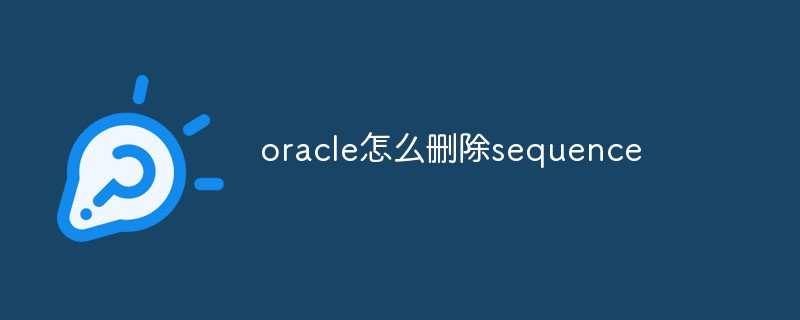The amount of memory required by Oracle depends on database size, activity level, and required performance level: for storing data buffers, index buffers, executing SQL statements, and managing the data dictionary cache. The exact amount is affected by database size, activity level, and required performance level. Best practices include setting the appropriate SGA size, sizing SGA components, using AMM, and monitoring memory usage.

How much memory does Oracle require?
Answer:The amount of memory Oracle requires depends on the database size, activity level and required performance level.
Detailed answer:
Oracle requires memory to:
- Storage data buffer: Contains recently accessed data to improve performance.
- Storage index buffer: Contains index information to improve query performance.
- Execute SQL statements: Temporarily store the intermediate data required to execute the statement.
- Manage data dictionary cache: stores metadata about database objects.
The exact amount of memory required varies based on the following factors:
- Database size: Larger databases require more memory for caching Data and indexes.
- Activity Level: Highly active databases require more memory to handle incoming queries.
- Desired performance level: Higher performance requires more memory to reduce wait times.
Best Practices:
For best performance, it is recommended:
- Change Oracle SGA (System Global Area) The size is set to 1/4 to 1/2 of physical memory.
- Size individual components of the SGA for specific workloads.
- Use automatic memory management (AMM) to dynamically adjust memory allocation.
- Monitor memory usage and adjust as needed.
The above is the detailed content of How much memory does oracle require?. For more information, please follow other related articles on the PHP Chinese website!
 oracle怎么查询所有索引May 13, 2022 pm 05:23 PM
oracle怎么查询所有索引May 13, 2022 pm 05:23 PM方法:1、利用“select*from user_indexes where table_name=表名”语句查询表中索引;2、利用“select*from all_indexes where table_name=表名”语句查询所有索引。
 什么是oracle asmApr 18, 2022 pm 04:16 PM
什么是oracle asmApr 18, 2022 pm 04:16 PMoracle asm指的是“自动存储管理”,是一种卷管理器,可自动管理磁盘组并提供有效的数据冗余功能;它是做为单独的Oracle实例实施和部署。asm的优势:1、配置简单、可最大化推动数据库合并的存储资源利用;2、支持BIGFILE文件等。
 oracle全角怎么转半角May 13, 2022 pm 03:21 PM
oracle全角怎么转半角May 13, 2022 pm 03:21 PM在oracle中,可以利用“TO_SINGLE_BYTE(String)”将全角转换为半角;“TO_SINGLE_BYTE”函数可以将参数中所有多字节字符都替换为等价的单字节字符,只有当数据库字符集同时包含多字节和单字节字符的时候有效。
 Oracle怎么查询端口号May 13, 2022 am 10:10 AM
Oracle怎么查询端口号May 13, 2022 am 10:10 AM在Oracle中,可利用lsnrctl命令查询端口号,该命令是Oracle的监听命令;在启动、关闭或重启oracle监听器之前可使用该命令检查oracle监听器的状态,语法为“lsnrctl status”,结果PORT后的内容就是端口号。
 oracle怎么查询数据类型May 13, 2022 pm 04:19 PM
oracle怎么查询数据类型May 13, 2022 pm 04:19 PM在oracle中,可以利用“select ... From all_tab_columns where table_name=upper('表名') AND owner=upper('数据库登录用户名');”语句查询数据库表的数据类型。
 oracle怎么删除sequenceMay 13, 2022 pm 03:35 PM
oracle怎么删除sequenceMay 13, 2022 pm 03:35 PM在oracle中,可以利用“drop sequence sequence名”来删除sequence;sequence是自动增加数字序列的意思,也就是序列号,序列号自动增加不能重置,因此需要利用drop sequence语句来删除序列。
 oracle查询怎么不区分大小写May 10, 2022 pm 05:45 PM
oracle查询怎么不区分大小写May 10, 2022 pm 05:45 PM方法:1、利用“LOWER(字段值)”将字段转为小写,或者利用“UPPER(字段值)”将字段转为大写;2、利用“REGEXP_LIKE(字符串,正则表达式,'i')”,当参数设置为“i”时,说明进行匹配不区分大小写。
 Oracle怎么修改sessionMay 13, 2022 pm 05:06 PM
Oracle怎么修改sessionMay 13, 2022 pm 05:06 PM方法:1、利用“alter system set sessions=修改后的数值 scope=spfile”语句修改session参数;2、修改参数之后利用“shutdown immediate – startup”语句重启服务器即可生效。


Hot AI Tools

Undresser.AI Undress
AI-powered app for creating realistic nude photos

AI Clothes Remover
Online AI tool for removing clothes from photos.

Undress AI Tool
Undress images for free

Clothoff.io
AI clothes remover

AI Hentai Generator
Generate AI Hentai for free.

Hot Article

Hot Tools

ZendStudio 13.5.1 Mac
Powerful PHP integrated development environment

mPDF
mPDF is a PHP library that can generate PDF files from UTF-8 encoded HTML. The original author, Ian Back, wrote mPDF to output PDF files "on the fly" from his website and handle different languages. It is slower than original scripts like HTML2FPDF and produces larger files when using Unicode fonts, but supports CSS styles etc. and has a lot of enhancements. Supports almost all languages, including RTL (Arabic and Hebrew) and CJK (Chinese, Japanese and Korean). Supports nested block-level elements (such as P, DIV),

SecLists
SecLists is the ultimate security tester's companion. It is a collection of various types of lists that are frequently used during security assessments, all in one place. SecLists helps make security testing more efficient and productive by conveniently providing all the lists a security tester might need. List types include usernames, passwords, URLs, fuzzing payloads, sensitive data patterns, web shells, and more. The tester can simply pull this repository onto a new test machine and he will have access to every type of list he needs.

WebStorm Mac version
Useful JavaScript development tools

DVWA
Damn Vulnerable Web App (DVWA) is a PHP/MySQL web application that is very vulnerable. Its main goals are to be an aid for security professionals to test their skills and tools in a legal environment, to help web developers better understand the process of securing web applications, and to help teachers/students teach/learn in a classroom environment Web application security. The goal of DVWA is to practice some of the most common web vulnerabilities through a simple and straightforward interface, with varying degrees of difficulty. Please note that this software






